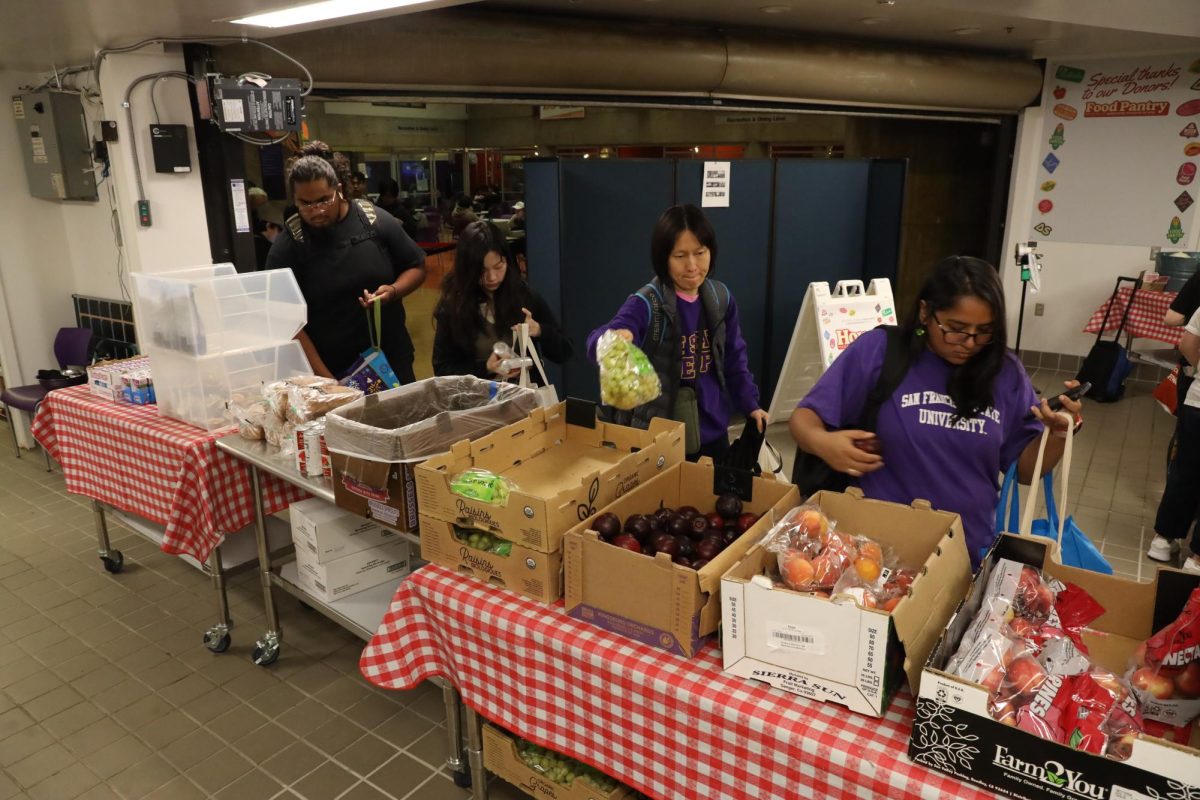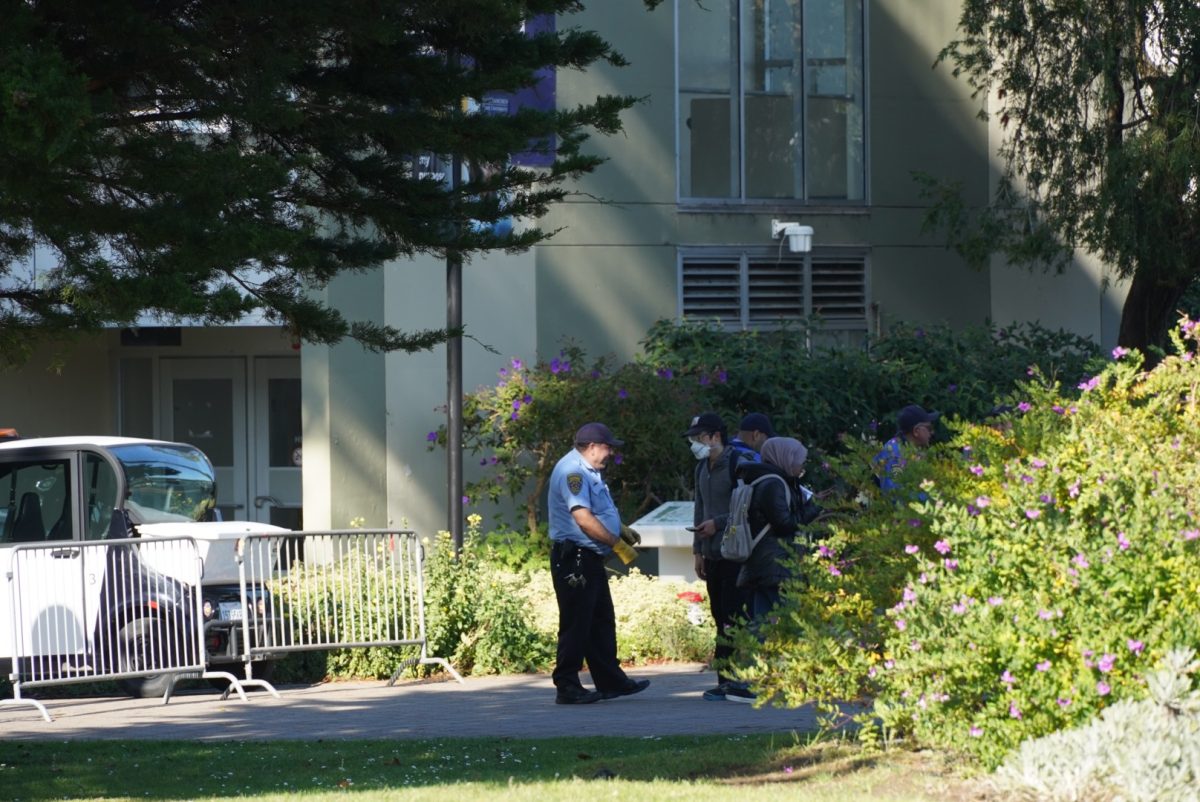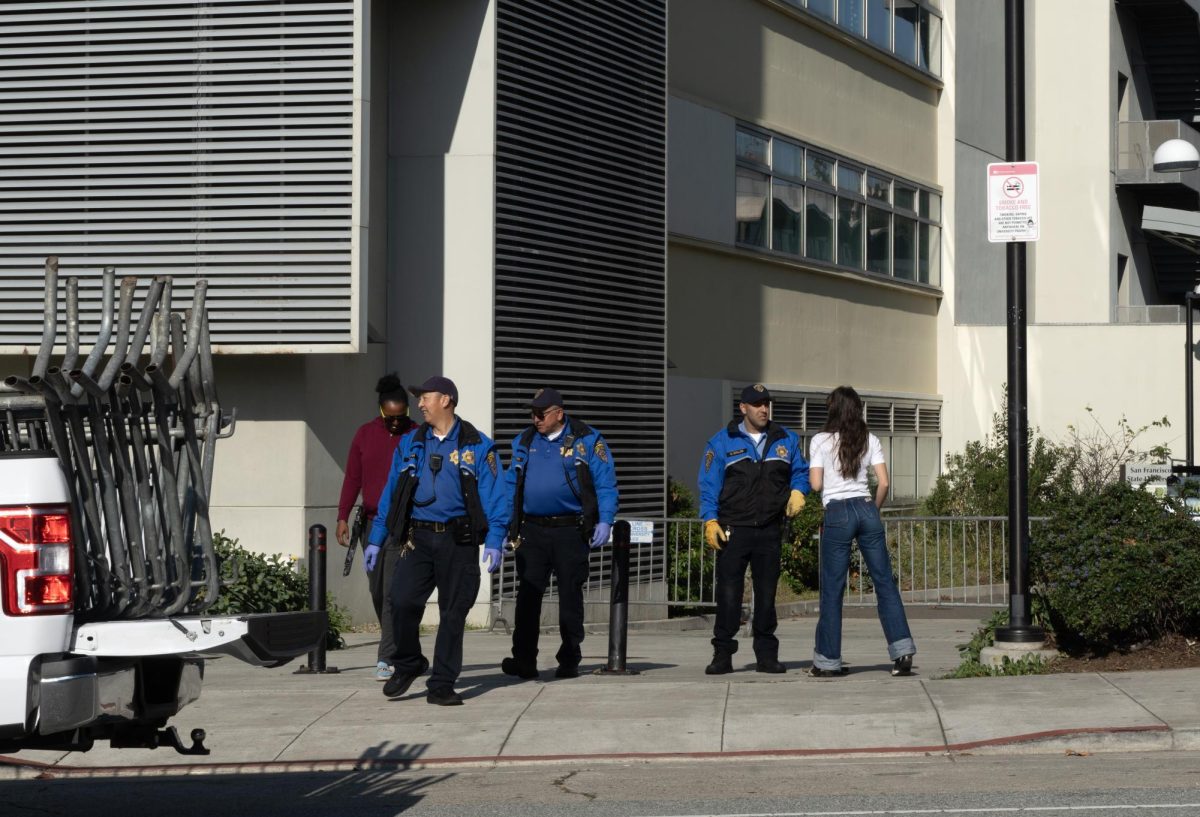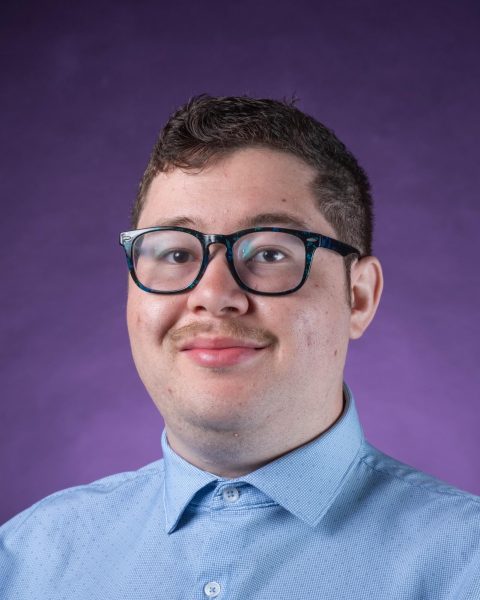A popular San Francisco State University program to address food insecurity is actively looking to secure new financing once its current source of financial backing runs out next July.
Gator Groceries, which serves around 700 to 800 students per week, is one of several programs that provide fresh food to students on campus alongside the Associated Students Farmers Market and Associated Students Food Pantry.
Nazim Hightower, a senior physics student, has used both the food pantry and Gator Groceries for two years after hearing about the programs from a friend.
“I was struggling financially and needed some food at the time and this has been helping me ever since,” said Hightower. “I got declined for food stamps and this has been a great help to substitute.”
The AS Food Pantry and Gator Groceries are often confused with one another. Horace Montgomery, the assistant executive director of programs for Associated Students and one of the founders of Gator Groceries, explained that Gator Groceries provides students with one to five items, such as spices, oil, snacks and other basic pantry essentials on Thursdays and Fridays from 11 a.m. to 4 p.m.
The AS Food Pantry is responsible for providing students around 20 to 25 pounds of food each on Mondays from 1 to 5 p.m. and on Tuesdays and Wednesdays from noon until 5 p.m.
According to Brandon Foley, president of the Associated Students board of directors, Gator Groceries receives an allocation of funds, approximately $85,000, from Graduation Initiative 2025 (GI2025) through Food+Shelter+Success.
GI2025 is an initiative by the CSU system to increase graduation rates for all students and eliminate equity gaps that impact underrepresented and disproportionately impacted students by providing funding to all 23 campuses. Part of that funding goes to each university’s basic needs centers.
Montgomery noted that student activism through both members of the Associated Students Board of Directors and a group named the “League of Hangry Students,” helped him to create a pop-up food pantry program in 2016 to help tackle the issue.
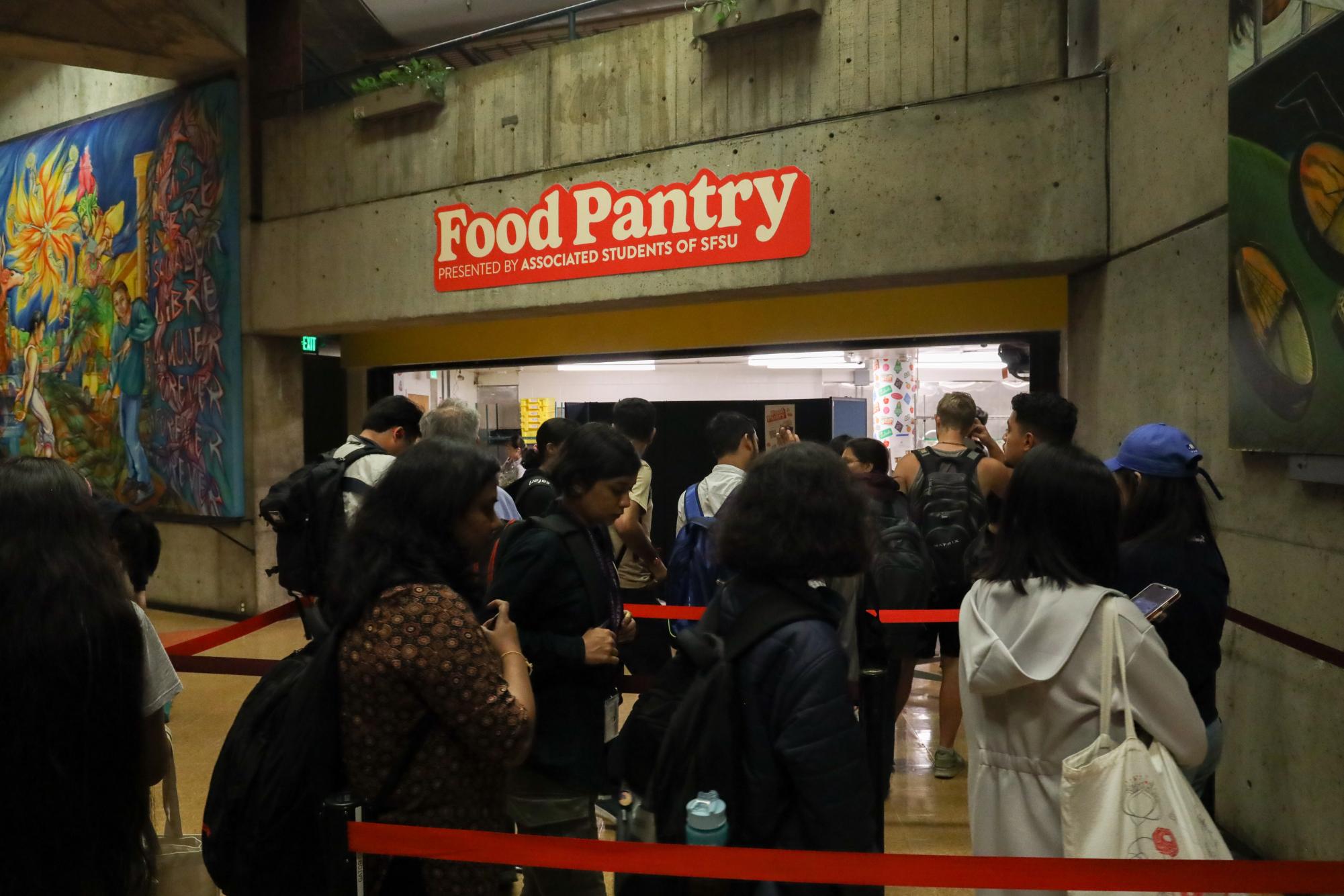
It was located in the Annex buildings. Montgomery said that everyone assumed that students would be ashamed or embarrassed to get the food in a location closer to the campus center.
“Lo and behold, we find out our students weren’t embarrassed. Our students didn’t care. They needed the food and going way over to the Annex was so far for them to go. They were bringing back 20 to 25 pounds of food. Like, if I had watermelons or things, they wouldn’t even get them because they had to carry them way back,” he said.
The pop-up pantry received a major upgrade once a 400-square-foot refrigerator was installed on the bottom floor of the Cesar Chavez Student Center. That upgrade allowed Montgomery and AS to expand the pop-up pantry into two programs: Gator Groceries and the AS Food Pantry.
Despite providing food to hundreds of students each week, Montgomery is constantly looking to improve Gator Groceries.
“Our biggest issue right now is to continue to try to make sure that we’re serving the most needy students,” said Montgomery. “Even with that, we’re still trying to make sure we find ways to make folks understand that this is for the food-insecure folks.”
One unique aspect of Gator Groceries that Montgomery mentioned was that compared to other local food pantries, there is no proof of financial instability needed to get services.
“Gator Groceries is one of 250 neighborhood food pantries run by community partners that we work with to provide food to the community. We supply food and help with administrative support but the pantry is really run by SFSU,” wrote Keely Hopkins, associate director of marketing and communications for San Francisco-Marin Food Bank, in an email.
According to a November 2023 study from the California Student Aid Commission, 67% of California State University students identified as food insecure, while a study conducted by SFSU’s Basic Needs Initiative Food+Shelter+Success in April 2021 found that 73% of SFSU students surveyed reported experiencing food insecurity.
Foley noted that he has already started having conversations with SF State Foundation board members about funding through alternative channels.
“I can say with 100% honesty that Gator Groceries is going to be the main focus of my year,” said Foley. “I think food insecurity, without a doubt, is the most pressing issue on our campus that Associated Students should be and will be looking at this year.”
Montgomery noted that the $85,000 is used to provide a small amount of funding for him to purchase stuff for Gator Groceries, while also helping to pay for three supervising positions to help run Gator Groceries, the farmers market and the food pantry.
One way that Foley is exploring new funding for the program is through fundraising.
“You have hungry students, low-income students, marginalized students who need food to go to school. Let’s help them get food. Let’s just give them food. It’s such an important thing. I can’t stress it enough,” said Foley. “I’ll be looking at the SF State Foundation board a lot hopefully. I’d love to talk about ways on how they can either help us fundraise or help directly support us.”
Montgomery considers food education a big part of his job.
“How do you do anything if you’re hungry? How do you do anything if your stomach hurts? You can’t study, you can’t retain information, you can’t take a test, you can’t go out and work to your best ability,” said Montgomery.
Montgomery believes that tackling food insecurity is a noble cause but notes that the matter receives minimal exposure as it is so common.
“There’s still a lot of kids out on this campus that are food insecure, that aren’t getting food and that, to me, is what makes me pause and make sure that I’m doing this properly,” said Montgomery. “Because I know, according to those stats, that even if everybody who came to get my food right now was food insecure, I’m still not providing enough.”




